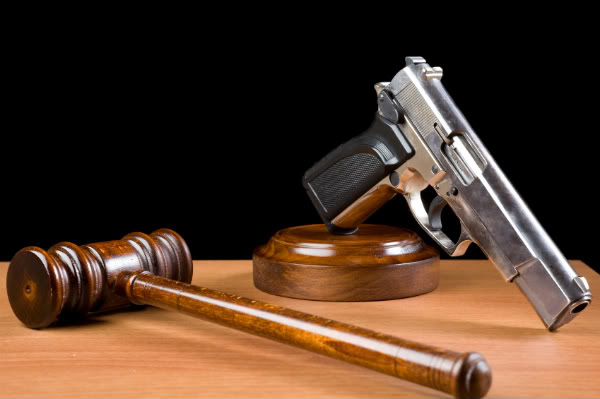Stand Your Ground Law Draws Unclear Line between Self-Defense and Homicide

Last week, George Zimmerman began his trial in Seminole County, Florida. The hearing will determine if the 28-year-old is guilty of the second degree murder of 17-year-old Trayvon Martin. The case has been on the national radar for months, with speculation coming from both sides.
Florida's Stand Your Ground (STG) law is central to the case. It states that a person is allowed to use deadly force in self-defense if they feel their life is threatened.
According to US News & World Report, "the laws expand on the 'Castle doctrine,' which says a person is protected under the law to use deadly force in self-defense when his or her property or home is being invaded."
Typically, the Castle Doctrine allows for deadly force to be used, but the justifiable homicide label applies only in the home.
For example, if an intruder were to enter someone's personal residence and present a threat of bodily harm, the owner would be justified under the Castle Doctrine to inflict harm in the name of self-defense.
However, the Stand Your Ground law justifies self defense regardless of where the attack takes place. Due to the law, police hesitated to arrest and charge Zimmerman the night he shot Martin.
The Stand Your Ground law -- and the 31 states with similar legal doctrines -- has come under fire as one of the more questionable facets of state laws in America. While gun control continues to be a hot topic among American citizens, the law has had unintended consequences that evoke how helpful -- or hurtful -- the law may be.
The law protected Ralph Ward, acquitting him in the shooting death of his wife's lover. However, the law was not applicable in the case of Marissa Alexander, a 30-year-old mother of two, who was sentenced to 20 years for firing a warning shot in response to threatening behavior by her estranged husband.
The judge threw out her claim of self-defense, noting that she could have run out of the house to escape her husband, but instead got the gun and went back inside.
The STG law was a factor in the death of Jordan Davis, a 17-year-old unarmed black teenager. Davis was killed by Michael Dunn after an argument over the volume of Davis' music. Dunn pleaded 'not guilty' under the umbrella of self-defense.
The ambiguous nature of this law has led many to call for its review, citing that with the ongoing cries for gun control, the law has convoluted the necessity of bearing arms.
Groups have examined the law for the intended effects. The Florida Prosecuting Attorneys Association scrutinized the law for its ambiguity when it comes to the line between self-defense and homicide.
Association member and state Senator Chris Smith (Fort Lauderdale) explained the reason behind the re-evaluation:
“It did not begin and it will not end with the Trayvon Martin case. There is a lot of misconception and misunderstanding around the state. It can lead to dangerous incidents.”
Additionally, The Tampa Bay Times investigated charges that the Stand Your Ground law is racially biased, claiming that cases involving black victims were acquitted 73 percent of the time, as opposed to the 59 percent acquittal rate for white victims.
While the law is intended to be essential to civil protection and crime deterrence, others see Stand Your Ground as a dangerous statute that could result in targeted attacks that threaten public safety.




